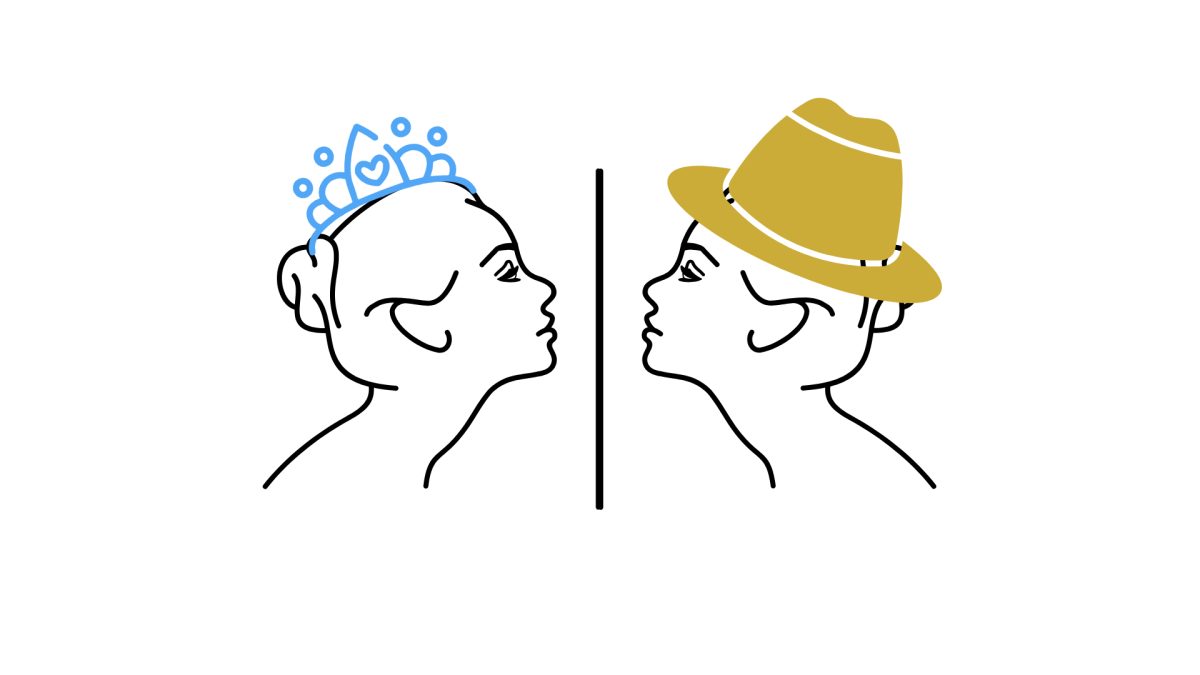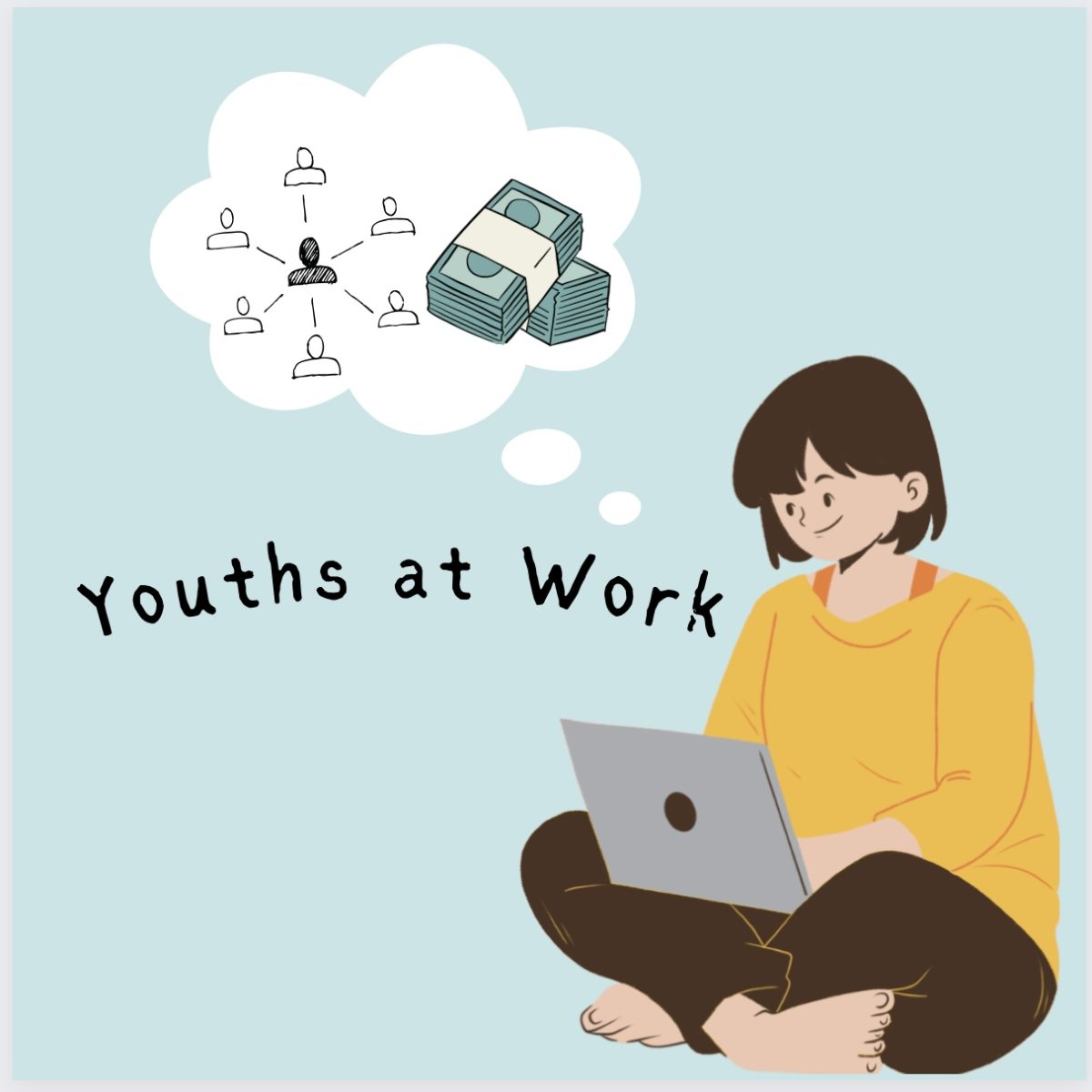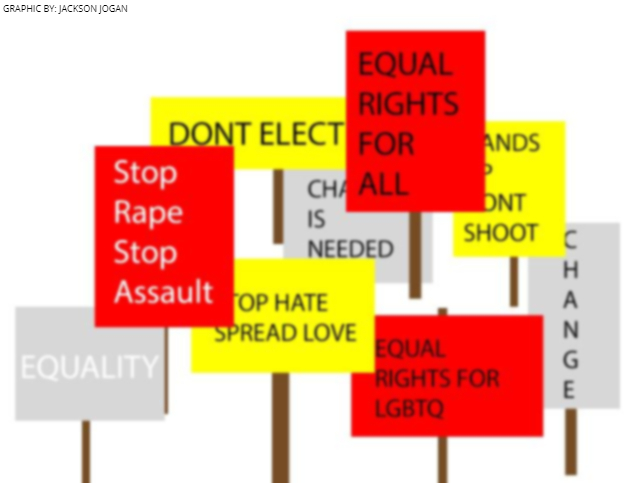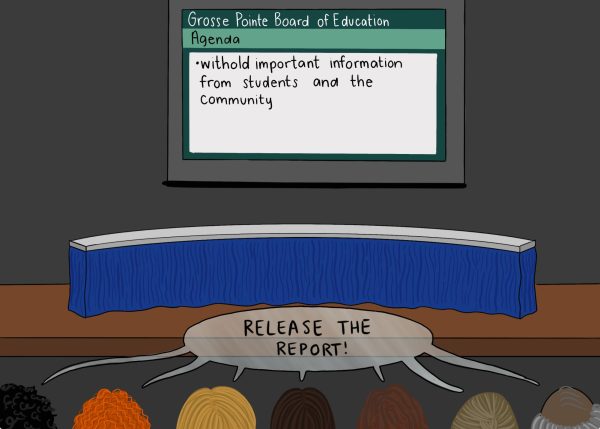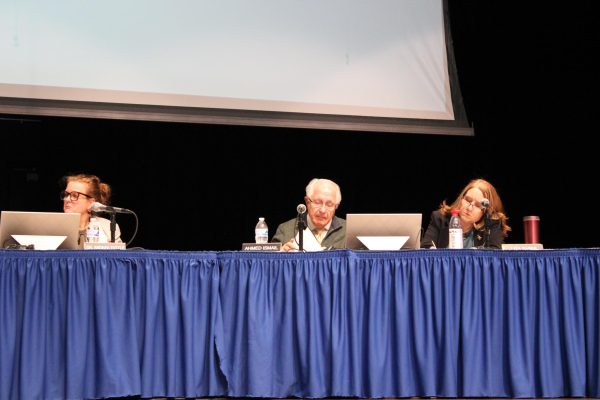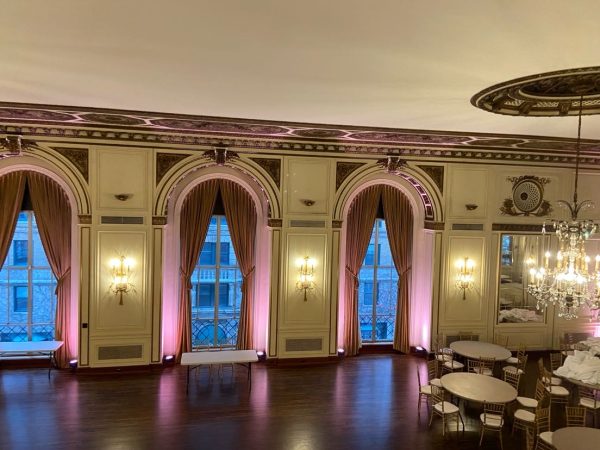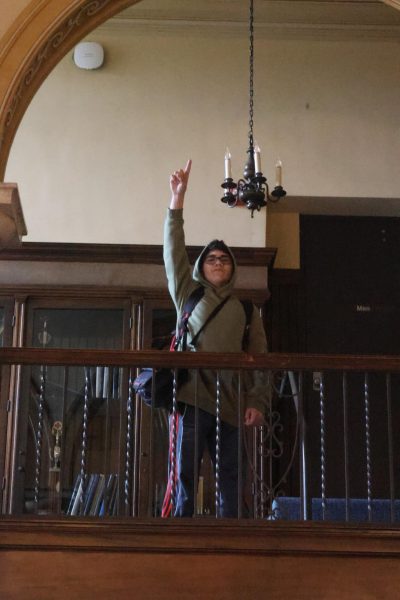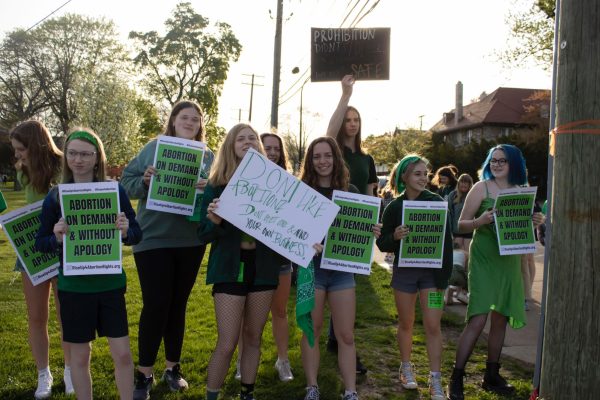The motivational imperfections behind American protests
October 15, 2018
Many protests in the United States are no longer about fighting for lasting reform. We have often protested over single incidents; mere demonstrations of the deeper problems. We have switched from protesting for change, to protesting to feel like we changed something, when the deeper issue lives on.
Our country was built on protest. We fought for our long lasting freedoms. We fought for our rights and for our values. The right to protest is in our First Amendment. The morals of the amendment are the same that give me my right to publish or my right to freely vocalize my opinion. This right, is necessary in a free country because it helps create and accelerate change.
In the 1700s, America fought against British tyranny and our founding members won our country. In the 1800s, America fought a war against slavery and the control of human beings. In the 1900s, America marched for women’s rights and the rights of colored people. In 2017, about 4 million Americans marched again, for equal rights for women and for people of color.
These were all fights against prejudice and against oppression. Protests like these are the kinds we need to hold today. They attack at the base of the problems and help create long term change.
Citizens still have reasons to protest today. Whether their opinion is the same as mine or not, it is still just as valid, and I support their right to speak it. Spreading opinions and ideas is healthy. Pushing for equality and change can help us grow, but we need to keep fighting for the right reasons.
I don’t believe that protesting against a Supreme Court Justice after he has already been appointed is the right thing to protest for. Rather we should protest against misogyny and sexual assault. Similarly, protesting against an already elected President won’t change things, but protesting during campaigning and before election will.
We break off the branches of problems because, for a short period of time, it seems like we changed something. But when we don’t cut out the the roots, we end up giving the roots time to strengthen. Then the cycle starts again when the branches grow back.
As people, we have to start protesting the root of the problem. We have to protest against morally wrong ideas, rather than the events in which we see them. While we can choose to protest the past, our best opportunity to achieve lasting reform lies elsewhere. It lies in stopping the ideas at their bases which spur the terrible events that we see.



































